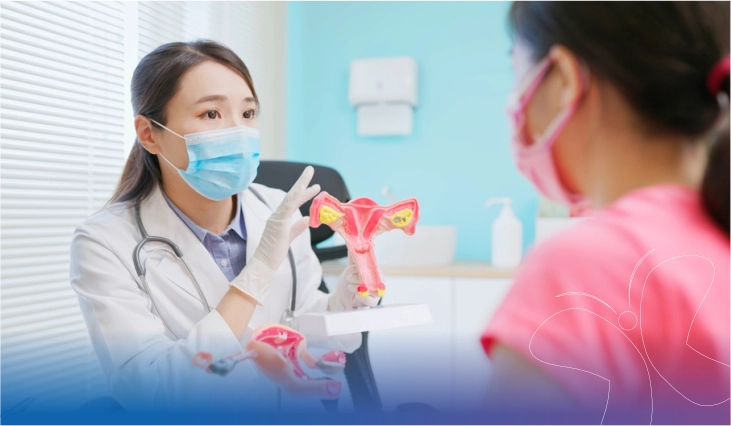PCOS, or Polycystic Ovary Syndrome, is one of the most frequent health problems for women of childbearing age. It's not only a "hormonal problem"; it affects metabolism, reproduction, and general health. Many women initially learn they have PCOS when they have trouble getting pregnant or have periods that aren't regular. The first step to manage it well is to know how PCOS affects pregnancy chances.
PCOS and How It Affects Fertility
How does PCOS affect the odds of getting pregnant? This is one of the most common questions women have. The issue often messes up ovulation, which means that eggs don't come out on a regular basis. The chance of getting pregnant goes down naturally when ovulation doesn't happen regularly.
But having PCOS doesn't always imply you can't get pregnant. Some women with PCOS can get pregnant on their own, while others may need help from a doctor. The problem is that ovulation is hard to predict and hormones might throw off the quality of the eggs. Some women have other problems that make it even harder to get pregnant, like gaining weight, being resistant to insulin, or having thyroid problems.
What to Expect When You Are Pregnant with PCOS
It is possible to get pregnant with PCOS, but there are several dangers that need to be watched closely. Women with PCOS are more prone to get gestational diabetes, high blood pressure, or go into labor too soon. Regular check-ups during pregnancy, a healthy diet, and getting medical help when you need it can all help lower these chances. Many women with PCOS go on to have successful pregnancies and safe births if they get the right care.
Natural Ways to Help Balance Your Hormones
Medical therapy is typically needed, but what you do in your daily life has a big impact on how bad your PCOS symptoms are. Here are some tips for managing hormonal imbalance naturally that can also help with fertility:
- Eat a balanced diet that includes whole grains, fresh fruits and vegetables, lean proteins, and healthy fats. Limiting sugar and processed meals can assist with insulin resistance, which is typically connected to PCOS.
- Stay active: Moderate exercise like yoga, walking, or strength training helps you ovulate normally and keeps your weight in check.
- Put your mental health first: Stress has a direct effect on hormones. Meditation, breathing exercises, and even writing in a notebook might help you relax your mind.
- Get a good night's sleep: Sleep regulates hormones, therefore you need 7 to 8 hours of sleep per night.
These minor but regular modifications not only make it easier to get pregnant, but they also make other PCOS symptoms less severe.
PCOS and Women's Health
Women have more than just PCOS difficulties. Women with endometriosis, fibroids, or thyroid problems may have irregular periods, pelvic pain, or rapid changes in hormones. That's why you should see a gynecologist as soon as you can. Simple tests and scans can help you choose the best treatment. These are some of the common gynecological problems in women that often need timely attention.
We at Flowrence Hospital are committed to helping women at every stage of their reproductive journey. We make sure that women with PCOS and other health issues get the finest care possible by hiring competent gynecologists, using cutting-edge diagnostic techniques, and creating personalized treatment plans. With the right guidance, women can better understand how PCOS affects pregnancy chances and follow practical tips for managing hormonal imbalance naturally to improve their overall health.











































































































































































































